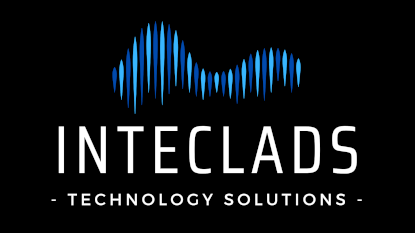What is Sage 200?
Sage 200 is a powerful Enterprise Resource Planning (ERP) system designed to help growing UK businesses manage finances, stock, sales, and operations more efficiently. It sits between entry-level accounting software like Sage 50 and full-scale enterprise solutions, offering a balance of functionality, scalability, and affordability.
Designed for businesses handling large transaction volumes or requiring multi-user access, Sage 200 integrates with a variety of third-party systems, making it ideal for companies looking to automate processes and improve efficiency.
Why Integrate with Sage 200?
Many businesses use separate systems for e-commerce, customer relationship management (CRM), warehousing, and finance, leading to data silos, manual data entry, and inefficiencies. By integrating Sage 200 with your other business software, you can:
- Automate Workflows: Orders, customer details, pricing, discounts and stock levels update in real-time.
- Reduce Errors: Eliminate manual data entry and ensure accuracy across systems.
- Improve Efficiency : Staff can focus on growth instead of repetitive admin tasks.
- Enhance Customer Experience: Faster order processing and accurate information reducing returns and errors.
- Gain Real-Time Insights: Access up-to-date financial and operational data for better decision-making.
Sage 200 Frequently Asked Questions?
Sage 200 is designed for small to medium-sized businesses (SMBs) and growing enterprises that need more advanced financial and operational management than entry-level accounting software like Sage 50. It is commonly used by:
- Wholesalers & Distributors – Manage stock levels, automate purchasing, and integrate with e-commerce platforms.
- Manufacturers – Track production costs, manage supply chains, and streamline operations.
- Retail & E-commerce Businesses – Sync sales, stock, and customer data across multiple platforms.
- Professional Services Firms – Handle project accounting, billing, and resource planning.
- Construction & Engineering Companies – Manage job costing, subcontractors, and financial reporting.
- Not-for-Profit Organisations – Ensure compliance with financial reporting requirements and track funding sources.
This depends on your business needs. Sage 200 and Sage 50 serve different purposes. It is about choosing the right fit for your business.
Sage 50
- Best for small businesses with simple accounting needs.
- Handles basic financial management, invoicing, and VAT returns.
- Suitable for companies with low transaction volumes and a small number of users.
- Limited scalability—not ideal for businesses expecting rapid growth.
Sage 200
- Designed for growing businesses that need more than just accounting software.
- Supports multi-user access, making it ideal for larger teams.
- Handles high transaction volumes, stock management, and complex pricing structures.
- Offers greater integration options with CRM, e-commerce, and third-party apps.
- Provides advanced reporting and analytics for better decision-making.
Which One Should You Choose?
If you’re a small business with basic financial management needs, Sage 50 is a cost-effective choice.
If your business is scaling, requires automation, and needs real-time financial and operational insights, then Sage 200 is the better option.
Sage 200 can file directly to HMRC for:
- Making Tax Digital (MTD) for VAT – Xero is HMRC-recognised for MTD, allowing businesses to submit VAT returns directly to HMRC.
- Payroll (Real-Time Information - RTI) – Xero Payroll can submit PAYE and National Insurance (NI) data to HMRC in real time.
- Construction Industry Scheme (CIS) Returns – If you handle CIS deductions, Xero can file monthly CIS returns directly to HMRC.
Sage 200 has both a Web based API as well as a Desktop API allowing for powerful and robust integration.
Sage 200 does not include payroll as standard, but it can integrate with Sage 50 Payroll or other payroll solutions. If your business needs payroll functionality alongside Sage 200, you have a few options:
- Sage 50 Payroll Integration – Sage 50 Payroll is designed to handle PAYE, National Insurance (NI), pensions, and HMRC RTI submissions. It can be integrated with Sage 200 for seamless payroll processing.
- Third-Party Payroll Solutions – Businesses can use external payroll providers and integrate them with Sage 200 for accurate financial reporting.
- Third-Party Payroll Solutions – Businesses can use external payroll providers and integrate them with Sage 200 for accurate financial reporting.
Key Payroll Features When Integrated
- Automated payroll calculations (tax, pensions, NI contributions)
- HMRC RTI submissions for compliance
- Employee payslips and reports
- Integration with accounting for real-time payroll costs
"By integrating with Sage 200 you can reduce mistakes and costs while improving efficiency."
Do you need help with Sage 200 Integration?
We specialise in custom Sage 200 Professional integrations, ensuring your systems work together seamlessly. Our expertise includes:
- Sales Order & Quote Integration: Automatically sync sales orders and quotes with Sage 200 for smoother order processing.
- Customer Data Synchronisation: Maintain accurate billing and multiple shipping addresses across platforms.
- Price Books & Discounts: Ensure individual customer pricing and all Sage discount types are applied consistently.
- Stock Level Updates: Keep stock data synchronised between Sage 200 and your e-commerce or inventory system, preventing overordering.
📞 Get in Touch Today
Want to streamline your business with Xero integration? Contact us to discuss your requirements!

